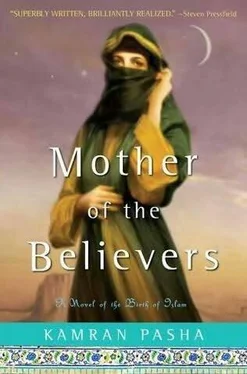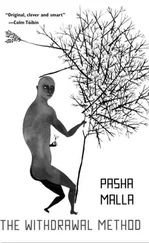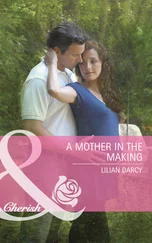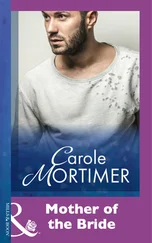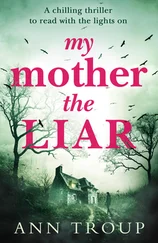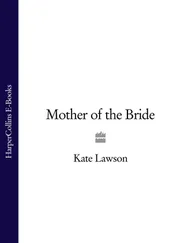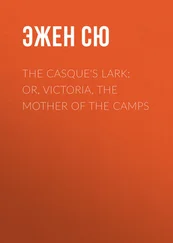The branded thief, his mouth reeking of onions and cheap wine, just looked at her for a moment, then snickered and went about his business. He tossed a silk-cushioned chair onto his cart and turned to go back inside one of the houses his men were ravaging, when Umm al-Fadl ran over and stood in the door frame. Her brown eyes challenged him to touch her, the wife of one of the most respected members of Quraysh. The bandit rubbed his scar in irritation and then decided not to risk inciting an honor feud.
“The goods of the heretics are to be sold in the market,” he said through a nest of broken and blackened teeth.
“Under whose authority?” she said, like a teacher scolding a naughty child.
The thief looked over his shoulder at the crowd of nervous onlookers and then spoke loud enough for everyone to hear.
“Abu Sufyan.”
Umm al-Fadl felt the color drain from her face. If Abu Sufyan could act with such impunity, then her clan was in severe danger. With the most influential Muslims gone, her husband would not have the backing to protect the community if Abu Sufyan decided to unleash vengeance on those who remained. It would start with stealing the property of the refugees. And it would end with the expulsion of her people. Or worse.
“These are the homes of the Bani Hashim,” she said, her outrage heightened by fear. “Abu Sufyan has no authority over our clan.”
And then a familiar leering voice she hated came from behind her.
“But I do.”
Umm al-Fadl turned to face the wormlike face of Abu Lahab.
Her brother-in-law, the chief of Bani Hashim, had always repelled her with his crude comments and suggestive glances at her breasts, which were still shapely and firm despite the onset of her middle years. His betrayal of his own nephew Muhammad, whom Abbas loved and who was always kind to her, had sealed her loathing for Abu Lahab.
“Go on with your work,” he said, in his high-pitched, almost effeminate voice.
“How can you let this happen?” she asked indignantly, even though her heart knew the answer. “These goods belong to men of your own clan!”
Abu Lahab shrugged. The sickly odor of his sweat was overpowering and she wanted to retch.
“Men who have renounced the gods and have fled our noble city like petty criminals have no clan,” Abu Lahab said loudly, ensuring that the crowds could hear his rationale. “Their goods belong to Mecca and will be sold to promote its commerce.”
Umm al-Fadl bit her lip hard, trying to restrain the compulsion to strangle him in the open street. She tasted blood in her mouth, like hot iron scathing her tongue. And then she turned to face the crowd, beating her chest in an ancient gesture of mourning.
“Is this what you have fallen to, Abu Lahab? Sanctioning theft and robbery as commerce?”
There were murmurs of shame among the men, and she saw several of the younger clansmen looking at their leader with open reproach.
Abu Lahab’s face turned dangerous. He suddenly grabbed her by the arm and pushed her against the stone wall of the house.
“You should learn to respect your elders, wife of my brother,” he said, a red glint in his tiny eyes.
Umm al-Fadl felt her skin crawl at his touch and she shook off his clammy hand with revulsion.
“A man has to earn respect, brother of my husband,” she said with as much dignity as she could muster. “It is gained through honor-which you have long since traded for power.”
There was a strange flicker his eyes and his tongue flitted in and out of his mouth like a hungry snake.
“Since you are so concerned with matters of trade and commerce, may I propose a business transaction to satisfy the debts of our wayward clansmen?”
She didn’t like where this was going. No one ever did business with Abu Lahab and profited. Umm al-Fadl knew that she had to take control of the conversation and the terms of any negotiation if she wanted to help her kinsmen.
“Abbas will ransom their goods,” she said with more confidence than she felt. Her husband was wealthy, but even he did not have the resources to buy back all of the stolen property in the marketplace.
Abu Lahab smiled. “It is not from my brother that I seek to collect payment.”
He ran his pudgy fingers, slick with the oil and sweat, through her hair. He leaned close to her, and she could feel the nub of his aroused member pressing against the thin cotton of his robe.
She slapped him, letting years of disgust pour through her hand.
Abu Lahab stepped back, stunned. His pale cheeks burned with surprise and embarrassment as the crowd of onlookers murmured at her audacity. The chieftain of a clan was a tent pole of Mecca’s social structure, and striking one in public would have many consequences. None of them good.
Abu Lahab’s eyes narrowed so much that she could no longer see his pupils. And then he struck back, slapping her with such force that she spun and struck her head hard against the stone windowsill behind her right shoulder.
The world scattered for a moment and she felt fiery needles pushing into her skull. Umm al-Fadl reached for her forehead, which was throbbing from the blow. When she looked down at her hand, she could see it was covered in blood.
Abu Lahab smiled viciously at the sight of his sister-in-law’s wound.
“Alas, it appears that we cannot agree to the terms of a deal. Pity.”
With that, the giant snail of a man turned and walked away, waving absentmindedly to his hired thieves to continue their work.
Umm al-Fadl looked at him through eyes that blurred with pain.
“Abu Lahab!”
The chieftain turned to face her, his eyebrow raised contemptuously.
“Every debt is repaid, brother of my husband,” she said coldly. “Remember that. Every debt.”
Abu Lahab snickered. But when he saw the darkness in her eyes, his smile faded and he hurried away.
I crawled across the floor of my small apartment, the wooden horse gripped in my hand. It was a toy that belonged to my sister, Asma, from her own youth, part of a collection of farm animal figurines that my father had purchased as a present on a trading mission to Sanaa two years before the Revelation. When my father had embraced Islam and destroyed the idols in his house, he had prepared to throw the tiny figures made of sandalwood into our fireplace. Asma had sat outside and wept at the loss of her toys to the new faith, and the Messenger had seen her crying and told Abu Bakr to give her back her playthings. Dolls and toys were not idols meant to represent false gods but simply amusements that gave children comfort.
In later years, when zealous believers began to prohibit all forms of images as idolatry, I shook my head in frustration as I remembered the gentle wisdom of my husband, who had always preached a religion of moderation. The stubborn resistance of some Muslims to common sense and their obsession with the letter of the law while ignoring its spirit has always been the bane of our community. With the Messenger no longer alive to restrain such foolishness, I fear that dogmatism and extremism may only worsen with time.
But in those days, with the Messenger’s tolerant and patient approval, I could still play with my toys and did so with abandon. My friends Leila, Munira, and Reem visited me that day, and we had spent the morning giggling and teasing one another as we had done before I married the Prophet. The three of us were on the cold stone ground, chasing one another’s toy animals in a mock race, when a shadow fell over the threshold.
I looked up to see the Messenger watching us, an amused smile on his face. The other girls shrieked with embarrassment and tried to run past him out of the house, but he blocked the doorway with his powerful legs.
Читать дальше
